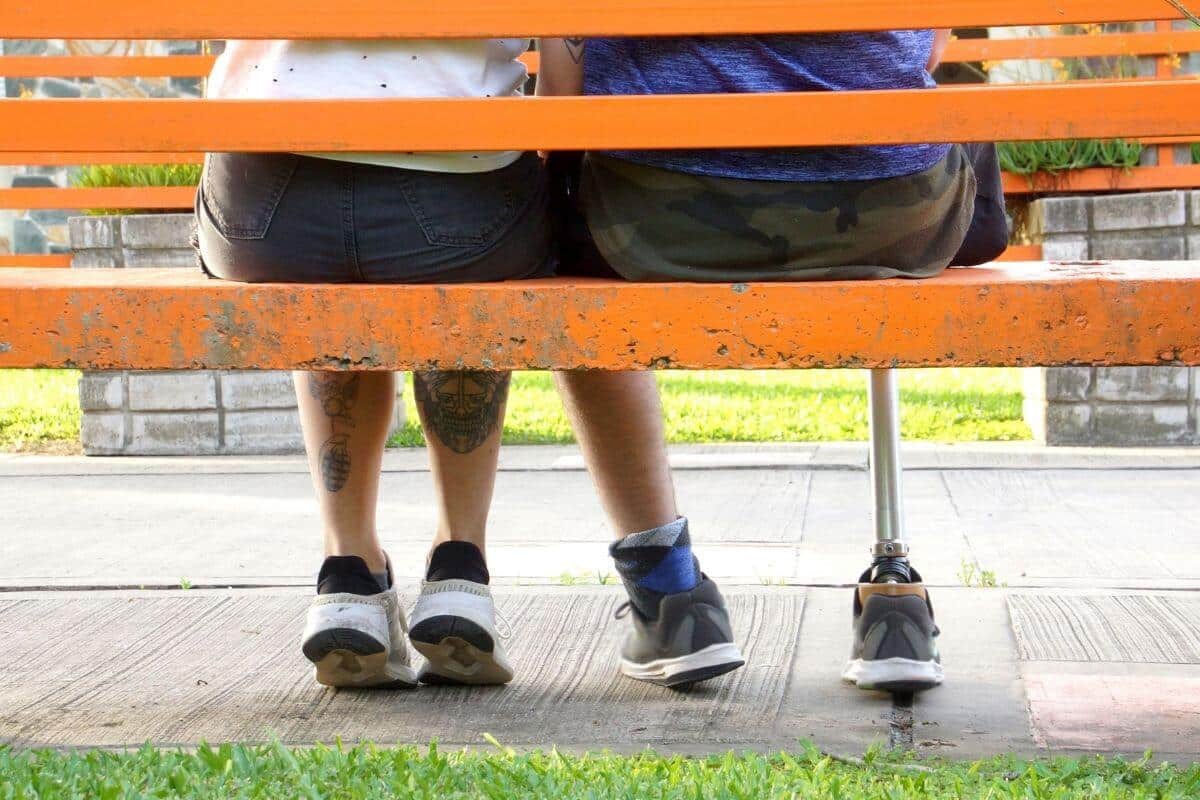
Disability and dating dos and don’ts
Relationships, sex, sexuality, and living with a disability: media professional and amputee Lisa Cox, disability awareness consultant Andrew Gurza, and National Adaptive Surfing champion Barney Miller tackle a range of traditionally taboo topics,
while also divulging their top tips for dating and getting intimate.
While she spends much of her time slaying myths about life with a disability, public speaker, stroke survivor and amputee Lisa Cox is also passionate about relationships and navigating the dating maze from the vantage point of a wheelchair.
Although she’s been married for 11 years, Lisa says that prior to meeting her husband she had to relearn how to date as someone with a disability – and there were distinct ‘dos’ and ‘do nots’.
“I wasn’t much of a bar person because I had been run in to too many times by drunk guys who didn’t know there was someone in a wheelchair behind them.
“A disabled friend gave me the heads up. She said, ‘Be careful of the ambulance chasers.’
They are the guys who want to swoop in and rescue you. Because poor you with the disability – life must be so miserable and will be much better with them.
“I also found guys who were wishing to go on a date with me and … how do I say this diplomatically?
“You got the impression they had tried dating all the women in the non-disabled world and that didn’t work.”
“I couldn’t get out of those dates fast enough.”
Fulfilling relationships without the ‘wow’ factor
In 2005, aged 24, Lisa caught the Streptococcus-A virus and suffered a severe stroke, and in the following year of complications and surgeries she lost her left leg, right toes and had nine fingers amputated. She also lost some eyesight.
She said people can struggle to compute that a relationship involving a person with a disability can be satisfying.
Once, while wearing her wedding ring, Lisa was in a supermarket and the woman at the counter said, ‘Oh, you are married. That’s so good to see.’
“It was almost ‘shock’ that a woman with disabilities could possibly be in a fulfilling relationship. Even when I told people, there was that same surprise and ‘really?’, ‘wow’, and ‘good for you’.
“My husband, unfortunately, is congratulated and praised just for choosing to be with me… to marry a woman with disabilities.”
Despite the misunderstood reactions at times, Lisa says now she is happily married to a man with the same outlook as herself, and she is able to share her experiences to help others avoid negative stereotyping.
Disability, sexuality, diversity
Disability awareness consultant Andrew Gurza has cerebral palsy – he calls himself “a queer cripple” and has a podcast, ‘Disability after Dark’ which started as a playful look at the intimate lives of people with a disability.
“It’s taken on a deeper meaning as we’re uncovering stories in the disability communities that we don’t generally hear.
“We’ve talked about my first experience with sex workers, polyamorous disabled relationships, and the times I was abused by care workers.”
While laws are great, Andrew says attitudes need to change as there is “so much fear”, discomfort, and misinformation around sex and disability.
In his late teens, Andrew says he worried about how he would be perceived because he was disabled and gay.
Now, he says, he often feels “overlooked or not looked at at all”.
“I’m in a wheelchair but I can have just as much sexuality as you can, and be flirty.”
People worry, he says, about saying the wrong thing while in an intimate scenario.
“They worry they’re going to hurt me, that they’re not going to know what to do or how to lift me.”
All he wants is for others to be mindful of the fact that he’s a person.
“Don’t infantilise the person in bed with you. People forget that there’s a human here. You’re not my saviour just because we’re hooking up.”
Andrew believes in the power of conversations to bring down barriers.
“One day, all of us are going to live with some form of disability or impairment. We need to work on teaching communities how to interact with a disabled person without hurting them.
Because of ableism and the ways we’ve been silenced by society, we don’t often say what’s on our mind. So tell your disability truth, and make sure people hear you.”
Riding a wave of love
Barney Miller, two-time National Adaptive Surfing Champion and ISA World Adaptive Surf Champion, is a C6 quadriplegic who found true love with his now wife, Kada Miller.
Kada, a singer-songwriter from NSW, says their 13-year relationship has “had its challenges, but as long as we keep communicating, it just figures itself out”.
Kada and Barney have released a book, The Essence of You and Me, to tell their tale of romance, overcoming obstacles, adventure, and planning a life together.
Barney was in a car crash in 1999, he broke his neck and was told he would never be able to breathe unassisted again.
Years of intensive rehabilitation followed, and then he met the girl of his dreams.
“Kada has the biggest heart you could ever find in someone and she thinks about everyone else before herself.”
The couple travel together, talk at schools, and continually aim to “spread more love and more hope”.
“We’re going to start a family and look forward to a happy future,” Barney says.
Living a bold life, he says, is “living a life the way you want it to be”.
“It’s just pedal to the metal and going hard and enjoying yourself.”